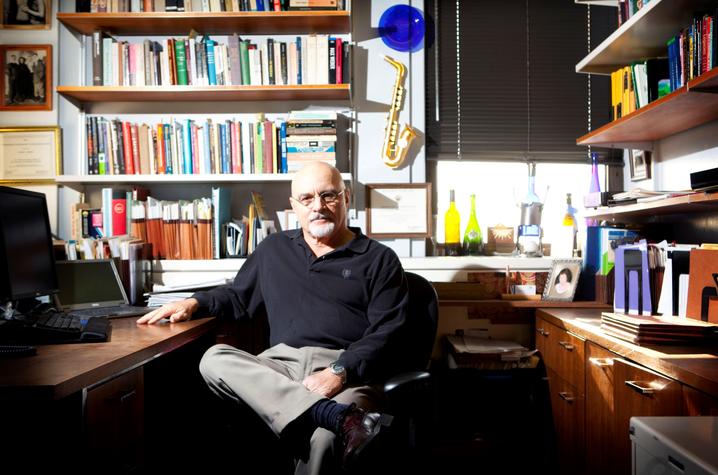UK's Janoski to Release 3 Books Instrumental to Political Sociology, Lean Production

LEXINGTON, Ky. (Jan. 17, 2020) — Thomas Janoski, professor in the Department of Sociology at the University of Kentucky, will celebrate the release of not one but three books this year.
As a professor at UK for more than two decades, Janoski has made significant contributions to the field of political sociology. Some of his previous works include, "Citizenship and Civil Society," "The Political Economy of Unemployment," "The Ironies of Citizenship" and "Dominant Divisions of Labor."
Janoski' s research combines political sociology with economic sociology, while comparing countries and economies over decades and even centuries.
Janoski' s latest endeavors — described in detail below — are a testament to his long-standing dedication to the field.
"The New Handbook of Political Sociology"
Janoski is the lead editor of "The New Handbook of Political Sociology (Cambridge University Press). He also authored three chapters of the forthcoming book.
As chair of the political sociology section of the American Sociological Association, Janoski put together a team of leading scholars to provide in-depth knowledge of the expanding field of political sociology.
This volume of "The Handbook" includes six parts: theories of political sociology, the information and knowledge explosion, the state and political parties, civil society and citizenship, the varieties of state policies, and globalization and how it affects politics.
“Unlike the first handbook, I encouraged the authors of the new handbook to survey the field but then take a cutting-edge and even daring approach to their topics on political sociology. This should provide for many debates over the next decades,” Janoski explained.
"Framing and Managing Lean Organizations"
As part of his effort to reorient sociology’s view toward political economy and work, Janoski has put together two books that take a panoramic but contested view of what he calls the “new division of labor” — lean production.
In “Framing and Managing Lean Organizations" (Routledge), Janoski and Darina Lepadatu examine the significance of lean organizing from two viewpoints. First, they look at how different disciplines view lean production in positive and negative ways. Second, they look at four groups of similar corporations — Toyota and Honda; Ford, Nissan and McDonalds; Nike, Apple and Google; and Walmart, Costco and Amazon — and how they implement lean production.
According to Janoski, there are three levels of lean production: Nikeification, Toyotism and Waltonism. “In whatever form, lean production has taken the place of Fordism as the new dominant division of labor," he said. "But each of the three forms has its own strengths and weaknesses."
"The International Handbook of Lean Production"
"The International Handbook of Lean Production" (Cambridge University Press) will involve the top authors in the fields of theories of lean production and the diverse industries that use this technique.
The handbook presents the disciplinary views of lean production, the implementation of lean production in different industries and how lean production is adapted in other countries.
"We were fortunate to get some of the top scholars in the field. For instance, James Womack and Daniel Jones were the authors of the bestselling 'The Machine that Changed the World.' And we also have one chapter featuring the True Lean Program at UK," Janoski continued. "Particularly interesting chapters deal with lean production in accounting, government, law, services and software.”
“After this burst of activity,” Janoski said, “I’ll take a rest and then work on my last book — 'A Synthetic Theory of Political Sociology.'"
As the state’s flagship, land-grant institution, the University of Kentucky exists to advance the Commonwealth. We do that by preparing the next generation of leaders — placing students at the heart of everything we do — and transforming the lives of Kentuckians through education, research and creative work, service and health care. We pride ourselves on being a catalyst for breakthroughs and a force for healing, a place where ingenuity unfolds. It's all made possible by our people — visionaries, disruptors and pioneers — who make up 200 academic programs, a $476.5 million research and development enterprise and a world-class medical center, all on one campus.




